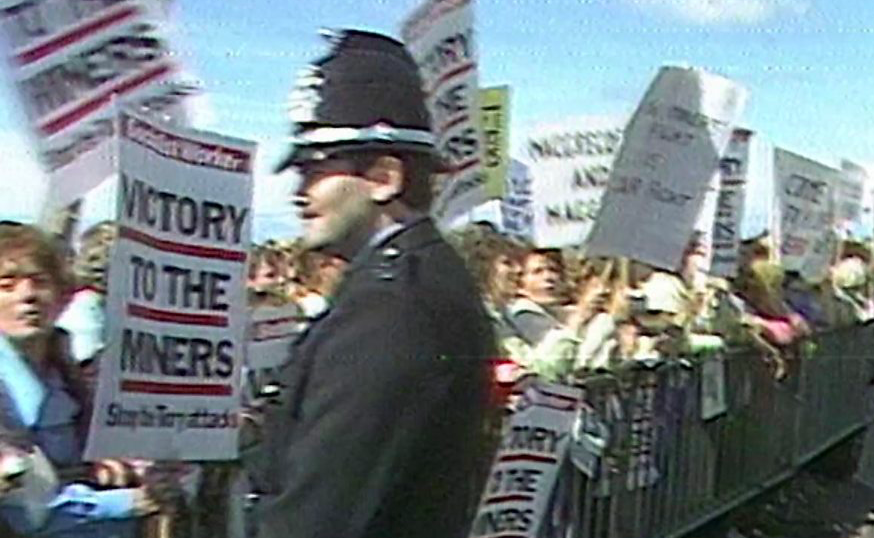Miners’ strike documentary set to air for 40th anniversary

A new documentary featuring six women from across the south Wales valleys telling their stories from the miners’ strikes in 1984 is set to air, commemorating the 40th anniversary of the nearly year-long events.
Strike! The Women Who Fought Back will detail the involvement of the thousands of women who came together to support their families and communities, from organising support groups to protesting on picket lines.
In March of 1984, one of the longest and most hostile industrial disputes Britain had ever seen erupted across the nation.
“Not just the men”
Coal miners from all over Wales took to the picket lines to protest the closure of the coal pits and their jobs. But it wasn’t just the men working down the mines that joined the fight.
In Strike! The Women Who Fought Back, the six women featured will detail events that went on to change the course of their lives, along with the lives of countless other families across Wales, with unflinching honesty, humour and detail.
Ann Jones, a miner’s wife from Hirwaun, discusses her experiences of travelling the country, picketing and making speeches in aid of raising money for families in need.
Ann Jones said: “My village was a very close-knit village. There was so much of the strike being discussed but the television coverage… there was only ever men doing anything. I wanted to be out, I wanted to be seen. I wanted to be involved.”
Confronting police
The programme details the thousands of women who would organise, campaign and picket on a scale never seen before. From setting up support groups and arranging food parcel deliveries, to confronting police at colliery protests.
These women stood out from the shadows, and with opportunities that were previously not afforded to them, used their voice to support their families and communities.
Kay Bowen, from the Dulais Valley, who helped organise the food parcels explains: “Within a fortnight, we were feeding the Seven Sisters valley, the Dulais Valley and the top end of the Neath valley.
“It was a network of miner’s wives. A welfare state really.”
The end of the strikes in early 1985 wouldn’t mean life went back to how it was though.
The events of the past year would transform the women’s lives, giving them each a new purpose.
Campaigner Sian James felt she had a voice and a story just as important as anyone, and vowed to push through more barriers, starting with finishing her education and getting a degree, on the way to becoming an MP.
Watch Strike! The Women Who Fought Back on BBC One Wales at 9pm on Tuesday 12 March or BBC iPlayer shortly afterwards.
Support our Nation today
For the price of a cup of coffee a month you can help us create an independent, not-for-profit, national news service for the people of Wales, by the people of Wales.






Shame the programme is made by a Bristol company, with an English director and an English Exec Producer. That’s not to say they haven’t gone a great job or are incapable of telling the story but surely BBC Wales should be supporting Welsh companies!